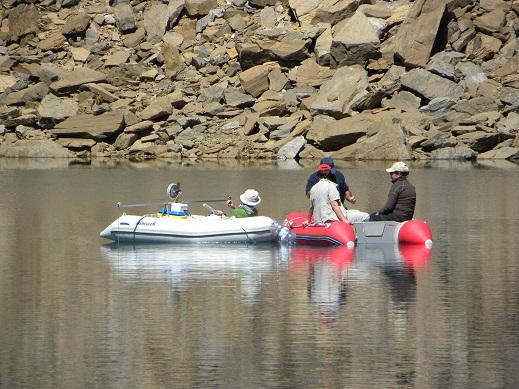The study, carried out by researchers from EFPU and from the Universidad de Granada (Spain), shows the commensalistic relationship between phytoplankton and bacterioplankton in oligotrophic lakes towards ultraviolet radiation (UVR) exposure and shallow vertical mixing.

In these experiments, a global change scenario characterized by a higher stratification of the water column and a decrease in the mixing layer depth was mimicked, such that the organisms would be exposed to higher radiation levels.
Under the simultaneous action of UVR and higher stratification, the commensalistic phytoplankton-bacteria relationship was strengthened in the most transparent lake. In the most opaque lake, on the contrary, this relationship was weakened, so that it is expected that these ecosystems would b particularly vulnerable to the climate change.
This article was published in Biogeosciences (click to go to publisher´s site)
Complete reference
Funding
This study was supported by the Ministerio Español de Medio Ambiente, Rural y Marino, Ministerio de Ciencia e Innovación, Junta de Andalucía, Consejo Nacional de Investigaciones Científicas y Técnicas (CONICET) and Fundación Playa Unión.